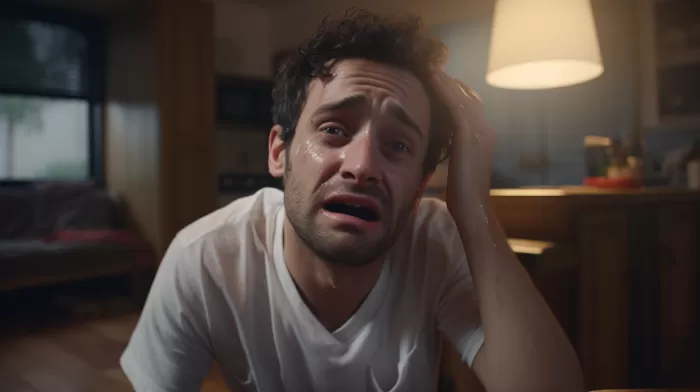Imagine waking up with a throbbing headache, a parched throat, and feeling a little bit nauseous… familiar? If it’s the aftermath of a night of heavy drinking, you may need to pay attention. No, we’re not just talking about a hangover, but rather, the hidden danger of an increased risk of stroke.
A study conducted in Finland has discovered an alarming link between what you feel after a night of overindulgence and your chances of experiencing a stroke. However, prevention can be as simple as altering your drinking habits.
The Invisible Threat of a Hangover
Among the numerous unpleasant symptoms of a hangover, there’s a much more dangerous, unseen threat – a higher likelihood of stroke, a leading cause of death and disability globally. In fact, strokes account for 10 percent of all deaths. Sounds scary? It definitely is.
The research in question studied the FinDrink data, which comprised middle-aged men who participated in a research of their health records. The findings show that if you’re accustomed to binge drinking, defined as consuming six or more alcoholic beverages in one evening, your risk of a stroke increases drastically. Just one hangover a year can significantly elevate your risk.
Men who are already dealing with weight issues or suffer from high blood pressure face the highest risk of cardiovascular complications.
Binge Drinking and Your Cardiovascular Health
Overconsumption of alcohol brings along a myriad of complications and dangers for your cardiovascular system. Binge drinking has almost become an epidemic, and most people tend to disregard the adverse effects it has on their bodies.
Research has established that heavy alcohol consumption can lead to arterial stiffening, a condition where the arteries become hardened, thus increasing the risk of a stroke. The effects of binge drinking on your cardiovascular health can be lifelong and irreversible, making it absolutely vital to reconsider your drinking habits.
Stroke Prevention Tips
Understanding the serious implications of excessive alcohol consumption, it’s essential to take the necessary steps to minimize the likelihood of stroke. Here are a few tips to get you started:
- Moderate your alcohol consumption: Enjoy your drinks, but do so in moderation. Stick to a maximum of two drinks a day for men and one drink a day for women. The American Heart Association’s guidelines for alcohol consumption are a great reference.
-
Monitor your blood pressure: Keep an eye on your blood pressure levels and work on maintaining them within a healthy range. Work closely with your healthcare provider to develop an action plan if you have high blood pressure.
-
Maintain a healthy weight: Obesity is a major risk factor for stroke, so focus on adopting a healthier diet and exercise regimen. The Centers for Disease Control and Prevention offers resources to help you achieve your weight-related goals.
-
Quit smoking: Smoking not only increases your risk of stroke, but it also poses dangers to your overall health. Seek professional help if necessary, or try nicotine replacement therapy to help with the process.
-
Manage diabetes: Diabetes is yet another factor that ups your risk of stroke. Work with your healthcare team to manage your blood sugar levels effectively.
Time to Rethink the Hangover
Hangovers have often been treated as a sign of a great night out, but it’s time to reconsider how you view your relationship with alcohol and the risks associated with it. By understanding the dire consequences of excessive drinking and making conscious, proactive efforts to improve your health, you can significantly lower your risks of developing cardiovascular complications, including a stroke. It’s time to rethink the hangover!



